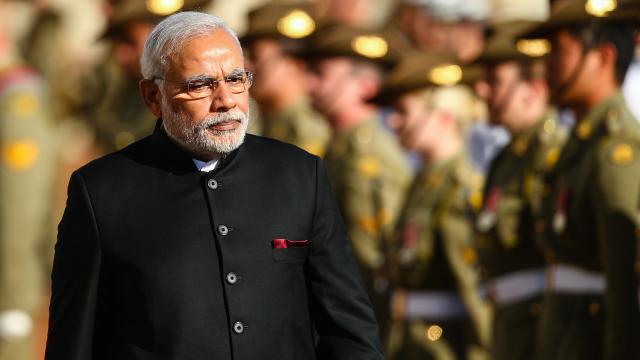Following in the footsteps of the European Union and Australia, the government of India now wants to rewrite its laws to censor content and weaken encryption. If allowed to move forward, India’s new proposals would require many web platforms to remove illegal content within 24 hours and use broken automation techniques that will inevitably lead to censorship.
The Ministry of Electronics and Information Technology (MeitY) uploaded a copy of its proposed amendments to the Information Technology Act to its website following a report from Indian Express on Monday. The brief, four-page document takes a sledgehammer to norms we’ve come to expect on platforms that traffic in user-generated content. The sweeping mandates would require platforms to prohibit users from uploading a wide range of content online and make it possible to trace offenders. Some of the banned content would be barred from most platforms anyway, such as uploading files that contain software viruses. But it would also mandate many other vague categories be proactively policed by tech giants including content that:
is grossly harmful, harassing, blasphemous, defamatory, obscene, pornographic, paedophilic, libellous, invasive of another’s privacy, hateful, or racially, ethnically objectionable, disparaging, relating or encouraging money laundering or gambling, or otherwise unlawful in any manner whatever;
[or]
harm minors in any way;
[or]
infringes any patent, trademark, copyright or other proprietary rights;
When it comes to issues involving “security of the State or cyber security,” platforms would be required to trace the origin of any activity deemed as suspicious and turn that information over to authorities within 72 hours of receiving a request. That kind of rule would mean that platforms, at the very least, would have to end any kind of features involving encryption that could obscure a person’s identity or hide material that would be relevant to an investigation.
Major platforms like the Facebook-owned WhatsApp have become a problem for authorities in India as the viral spread of hoaxes from anonymous uploaders has led to violence and vigilante mobs. WhatsApp has 200 million users in India alone, but rather than work with individual platforms that have become an issue, it appears authorities’ patience has run out and they intend to set up their own version of China’s Great Firewall.
Like the new copyright directive making its way through European Parliament, India’s regulators foolishly believe that tech giants and little guys alike can just automate their way out of the problem. Using filters like YouTube’s multi-million dollar Content ID system leads to perfectly allowable content being flagged and algorithmic systems simply aren’t advanced enough to make sophisticated decisions using vague directives like “stop anything that will harm minors in any way.”
Some of the activity that India would like to see algorithms wipe off of the web gets even more abstract than identifying “libellous” speech. One line in the legislation bans user uploads of content that “threatens the unity, integrity, defence, security or sovereignty of India.” That could be virtually anything.
Any platform that has more than 5 million users located in India would also be required to appoint at least one full-time employee charged to work as a liaison between the government and the platform. This person would ensure that the company is doing everything it can to fall into compliance with the regulations.
The strict proposals regulating copyrights and trademarks would make it virtually impossible for any platform to risk hosting content that falls under parody or fair use. And overall, these regulations point to a future in which platforms and users are so nervous about letting a violation slip through the cracks, the only reasonable thing to do would be to impose heavy-handed self-censorship.
According to Indian Express, representatives from American tech companies like Google, Facebook, WhatsApp, Amazon, Yahoo, and Twitter met with Indian authorities last Friday to discuss the looming restrictions. These colossal organisations have billions of users and would likely find a way to comply with whatever rules are thrown at them in order to maintain a hold on one of the fastest-growing markets for web services in the world. Whether smaller players and newcomers could even theoretically follow these restrictive guidelines is an open question.
When a populace region proposes highly-disruptive regulations for the web, there’s always the threat that companies working without borders will simply apply the changes to all of its users around the world in order to simplify operations. These new rules are so extreme and unrealistic that, if implemented, the more likely scenario for India is that it would break away into its own version of the web. Unfortunately, when the web fractures, it harms us all.
[MeitY via Buzzfeed News, Indian Express]
